Northern Victoria and southern Riverina dairy farmers leaving the industry
Drought, a devalued product, poor and wasteful water policy and increasing input costs have left dairy farmers with no choice but to leave the industry. And it is a crisis that could have devastating effects for everyone across the country.
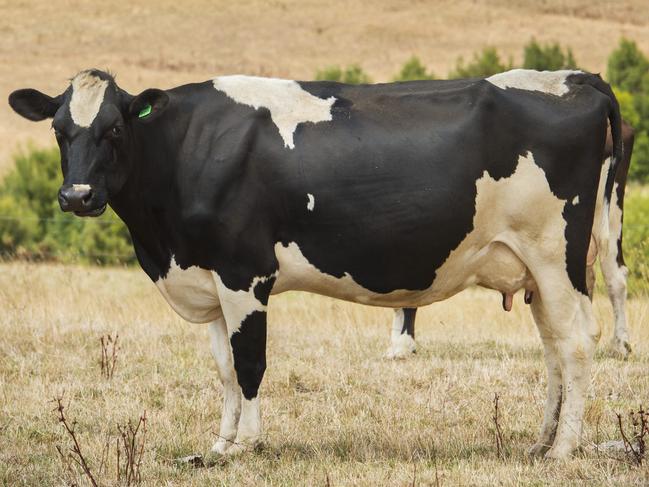
VIC News
Don't miss out on the headlines from VIC News. Followed categories will be added to My News.
THE northern Victorian and southern Riverina dairy industries could be entering their death throes.
A perfect storm of protracted dry conditions; soaring input costs (especially feed and power); an out of control water market and farm gate milk prices well below production cost is forcing more and more dairy farmers out of the industry.
Businesses in rural towns are feeling the pinch as the income once generated by the farming community leaves their shires.
And they are leaving in droves.
GIPPSLAND JERSEY CALLS ON LOCALS TO DIG DEEP
HOW A CALENDAR WILL SAVE OUR FARMERS IN CRISIS
LABOR LOSES VOTE OVER AUST DAIRY FARMERS
National Herd, a milk testing and collection business based in the Murray River town of Cohuna, lost eight farmers from its books between June and December last year.
In less than two months in 2019 the company has seen a further 22 herds vanish — the equivalent of 5500 cows and 41 million litres of milk annually.
And that’s just National Herd’s figures.
Troy Woolhouse has worked for the company since 2006 and he said he has never seen things so bad.
“During my time I have seen drought, flood and a milk price crash but this is by far the worst — the high cost of water, grain and hay has been a real killer and until they resolve the water situation, it will keep getting worse,” he said.
“Cohuna will be nothing but a retirement town because the dairy industry is what keeps it going.”
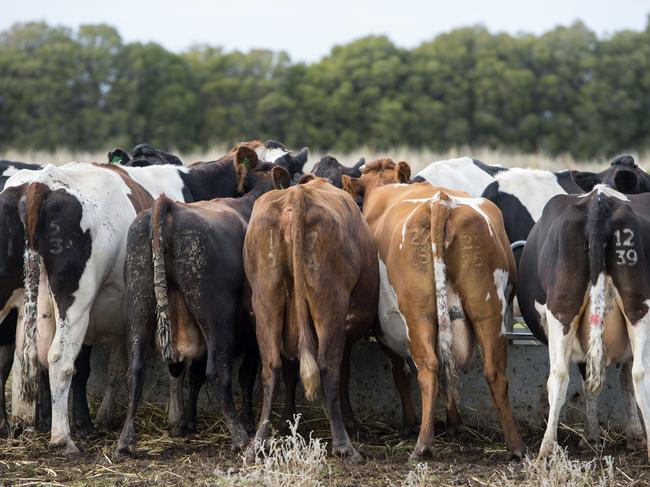
Rachael and Bob Warren own Jacob Motors, a family business operating in the area since 1954. She too has never seen things as bad.
The hay season from October to December is traditionally their busiest time.
“Last season we didn’t turn over a piece of machinery and for those three months we went backwards,” Ms Warren said.
“Farmers are being very selective about their spending and are choosing to repair what they can, our workshop has been steady but I have never seen our customers so stressed, anxious and depressed.”
She said if there is no change — and it will need to be a big change — in the next six months things will be very dire indeed.
“Farmers have already exhausted all their funds to keep going and emotionally I just don’t think they can do it again.,” she said.
“I am concerned about mental health, especially for those who stand to lose everything they have worked for.”
From a business perspective she is worried that once dealerships leave the area they will never return.
The introduction of the Water Act and the consequent Murray Darling Basin Plan has seen the face of irrigation change across the country and it has spelt disaster for rural towns such as Cohuna.
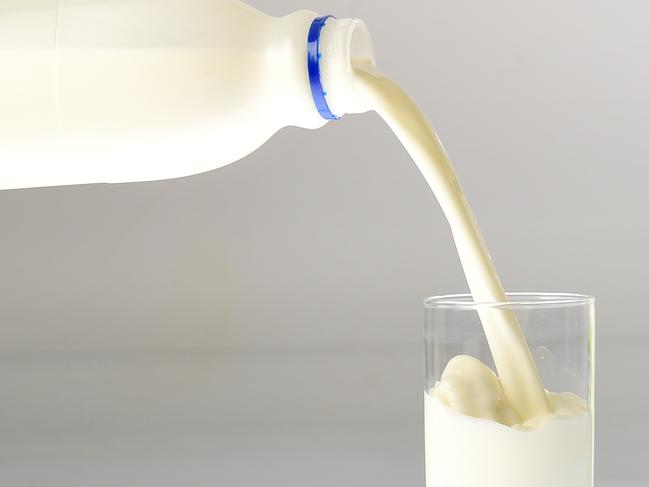
This year farmers are facing temporary water costs of $550 a megalitre and as the footprint shrinks even further, the cost of running the system is shared among fewer irrigators, increasing the cost of water delivery on farms.
There are farmers who can no longer afford to irrigate pasture — water is simply too expensive. The dairy industry that relies so heavily upon it, and its communities, are in tatters.
Across the border in the southern Riverina the story is even worse for irrigators who have had to battle through a year with no allocation at all.
Cattle are leaving the area in the thousands as farmers destock or exit the industry altogether.
Speak Up campaign chair Shelley Scoullar has been concerned about the impact the Basin Plan has had on rural communities and agriculture for the past four years.
“I never thought I would see the destruction of the most water-efficient food bowl in the country, if not the world, in my lifetime,” Ms Scoullar said.
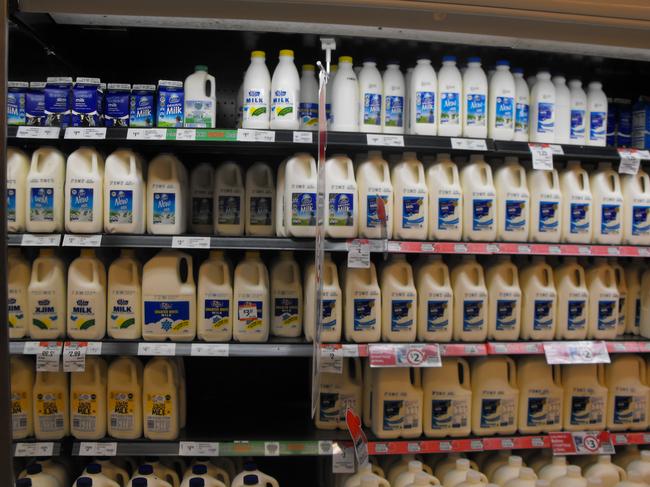
“Our family farmers are world leaders in water usage, food production, sustainable practices and animal welfare and they can no longer afford to pay the costs associated with water because our government has deemed it more important to send fresh water to South Australia for boating regattas.
“It breaks my heart that good, hardworking Aussies who just want to produce clean, green food are forced into the position they have to walk out of industries which have built rural communities across southern NSW and northern Victoria.”
DREAM DIES IN THE DUST
FEBRUARY 19 was a terrible day for Marshal and Suzie Jacobs.
It was the day the last of their dairy herd boarded a semi and their long-held dream of being dairy farmers vanished along with the truck in a cloud of dust down their driveway.
The years they had spent breeding up their jersey herd, the hours they had worked side-by-side counted for nothing, as they said a final goodbye to their beloved cows.
It was a sad end for the family and the emotion is still real days later.
Tears well in Suzie’s eyes as she tries to put into words what it felt like to see the last of the cows go.
Marshal gives her arm a quick rub and says, “It’s OK, darl.”
But he is lost too.
“That’s the thing, I have always been a dairy farmer and now I don’t know what I am,” he said.
Four years ago it was a different story.
They had bought their own farm, were milking 180 cows, building their asset base and looking to expand to 250 cows with their eye on another farm.
In May 2016, their milk company, Fonterra, decided it had paid too much for the milk it had already collected from its suppliers and clawed back what it deemed was overpaid money.
It cost the small mum-and-dad business $500,000 in lost income and assets.
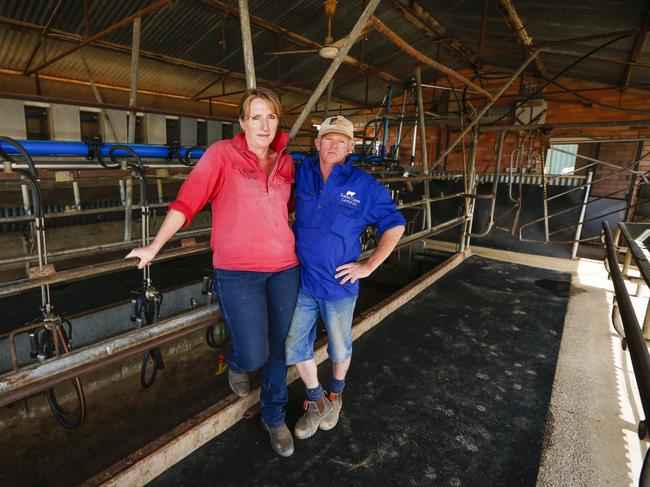
“In hindsight the writing was on the wall for us back then and it should have been the catalyst for us to pull the pin, but dairying was our shared dream, we love milking cows and we love producing a clean, green product to feed our nation,” Marshal said.
The couple thought with determination and hard work they could get back on their feet but the ensuing years were no kinder.
Poor milk prices, cheap supermarket milk, an over-inflated water market, dry conditions and exorbitant feed prices have forced them out of the industry.
“It was costing us $30,000 a month just to feed our small milking herd — that doesn’t include other costs like power, rates, maintenance, young stock, mortgage and living costs,” Marshal said.
Every way they looked, they knew the numbers weren’t going to stack up and they had to leave.
“It was like preparing for a funeral. The decision was terrible but it was taking such a huge toll on us financially and mentally we had to stop for our own health, we were just beaten by things out of our control,” Suzie said.
Things are so bad, the Jacobs know they will be just one of many to leave.
“It’s a tragedy for our industry, the rural communities that depend on the income we generate, and for food security in this country because there is a real danger we will be drinking powdered milk imported from overseas in the not-too-distant future.
“We might have only been a small farm but we contributed to our regional economy and were looking forward to one day being self-funded retirees — now we will be relying on the government to support us.”
WE ARE LOSING MORE THAN JUST FARMS
LACHLAN Marshall’s dairy business at Blighty, in the southern Riverina produces 12 million litres annually — that’s enough milk to make 80 million cappuccinos.
It supports three family members who between them have four children.
It also employs an additional 17 staff, an equal split of men and women, who have their own families to support.
And it generates millions of dollars; much of which is spent in the local community.
But today it is all balanced on a knife’s edge.
Lachlan’s business, one of the largest employers in the district is on the brink and Lachlan has the weight of the world on his shoulders.
His family depends on him, his employees depend on him and we as Australians depend on him.
Lachlan is just one of the country’s many dairy farmers struggling under the weight of a devalued product, poor and wasteful water policy and increasing input costs.
And a protracted dry spell bordering on drought.
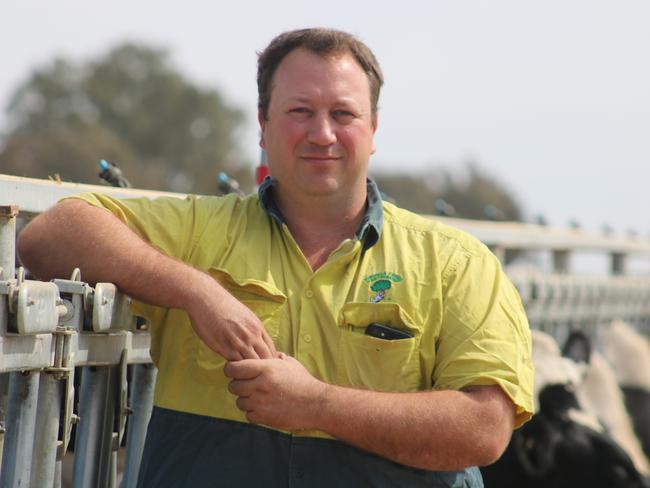
In the past three months he has sunk $1.2 million dollars into water to irrigate the corn crop which provides two thirds of the feed for his 900-cow milking herd.
The cows are fed and happy but for the first time in four generations, Lachlan has been forced into reducing young stock numbers.
He can’t even plan for the future; he is just trying to make it through the next month.
“Forty per cent of the nation’s food is produced in our region and only a quarter of that is now in production — this is a really scary figure when you start to look at food security and our future,” he said.
He said Australian milk was produced to the highest food safety standards in the world — something that cannot be guaranteed on imports.
“We don’t know the chemical history or hormone use, whether it is ethically grown or if there are contamination issues, those things are all strictly controlled here in Australia,” he said.
“Big picture, the country stands to lose so much more than a few dairy farmers if the industry goes belly up, rural towns and businesses will close, the economy will stall and food security will be compromised.
“This is a disaster of the highest magnitude — and no-one seems able to, or wants to, stop it.”


